RESULTS
The Outcomes Management Program at AK Child & Family measures the effectiveness of our programs and services and how we make a difference in the lives of the youth and families we serve. We do this through a variety of surveys and measurement tools, one of which is the Child and Adolescent Functional Assessment (CAFAS). The CAFAS is a 240 item survey that conducts ongoing assessments of how students function around the following 8 domains of life:
- Home
- School
- Community
- Behavior Towards Others
- Moods and Emotions
- Self Harm
- Substance Use
- Thinking
When your child comes into our program their CAFAS assessment scores tend to be elevated, reflecting a need for intensive services. As your child progresses through treatment and develops the skills they need to stay safe in their homes, schools and communities, their CAFAS scores decrease. The decrease in score reflects improvement in daily functioning. CAFAS assessments are conducted at intake, every three months during your child’s stay and at discharge.
Below you will see the average admission CAFAS scores for youth served FY17 through FY21 followed by their discharge scores. As you can see, youth that complete our program leave with significantly lower CAFAS score than when they arrive, indicating improvement.

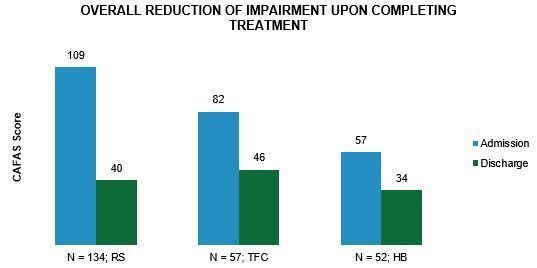
The Outcomes Management Program includes a voluntary post-discharge survey which we conduct at 6, 12, and 18 months after a youth has discharged from our program. In the graph below, you can see where the youth that participated in the post discharge surveys admitted from, were discharged to, and lived 18 months after their discharge.
Most youth involved in the survey were living at home with family or independently at 18 months after discharge.
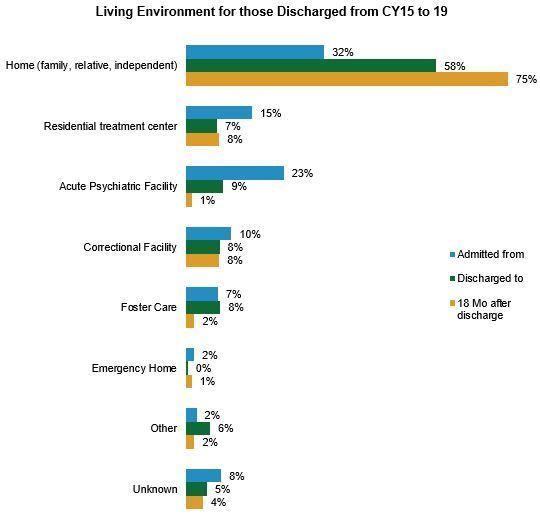
Of the youth and families that participated in the post discharge interviews, the chart below shows the rate of youth that are now displaying minimum to mild impairment in the listed categories 18 months after discharge.
Example for clarity: 88% of youth maintain improvement in their behaviors at school, 84% are maintaining a C or higher, etc.
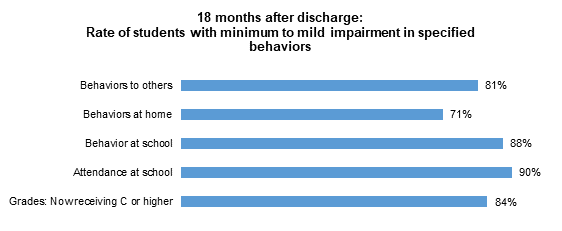
When youth enter treatment at AK Child & Family, they present with various high risk behaviors that impact their lives at home, school and community. Youth represented in this graph are no longer engaging in the high risk behavior they admitted with at 6, 12 and 18 months post discharge.
Example for clarity: Of the youth that came in with issues of being verbally and physically aggressive, 66% of them were no longer displaying those behaviors at 6 months post discharge, 62% were no longer displaying those behaviors at 12 months, etc.
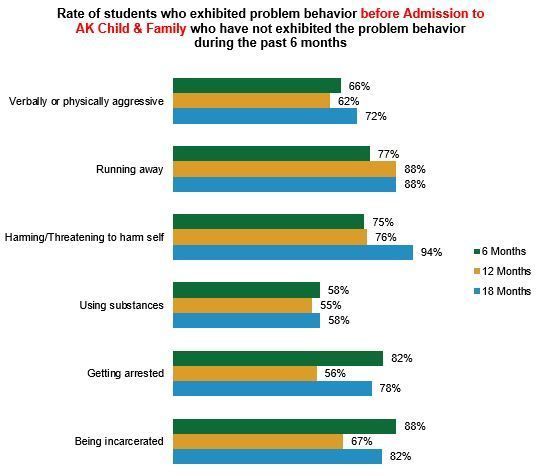
In addition to CAFAS scoring, we track the average lengths of stay in our programs. You can anticipate that your child’s treatment stay would fall somewhere within the below ranges, however it should be noted that length of stay within a program is determined by the individual’s progress towards treatment plan goals and objectives.
The below graphs represent the range of the lengths of stay for youth from FY 2017 trough FY2021 in various programs. The average length of stay is represented by the red point identified within the range.
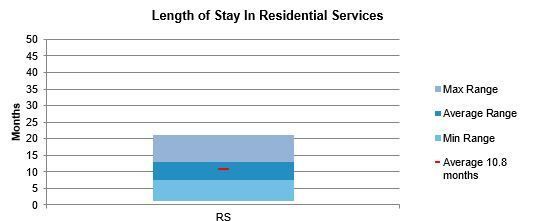
* Most students stay in residential spans 6 to 12 months
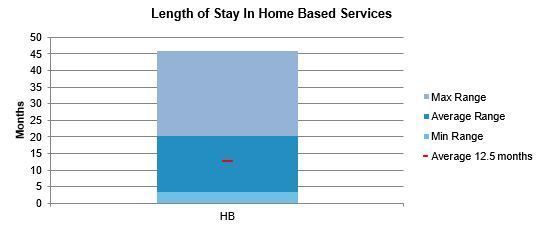
* Most students stay in the Home Based program spans 4 to 15 months
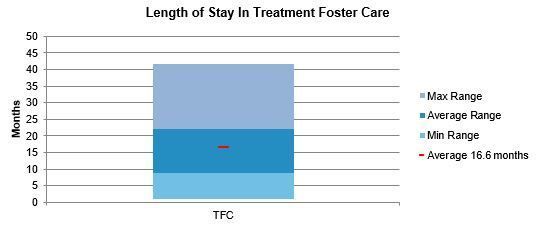
* Most students stay in Treatment Foster Care spans 7 to 22 months
We also collect valuable data from our consumer satisfaction surveys. Through these surveys youth in our care, parents, guardians and referring agencies are given the opportunity to assess our services on a 1-5 scale, 1 indicating “strongly disagree” and 5 indicating “strongly agree”. These surveys are sent out annually to consumers that are currently in our program. The feedback is voluntary and confidential. Below you will see the feedback given to us by our students and families in our 2021 Perception of Care surveys


